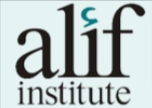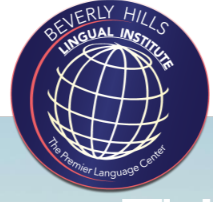Generally speaking, Modern Standard Arabic (MSA) is a form of Arabic used to interact with books and official mediums of communication (legal documents, news, etc), most of which require an editor. MSA is not a language anyone grows up speaking, rather it is a language that is acquired.

Generally speaking, Modern Standard Arabic (MSA) is a form of Arabic used to interact with books and official mediums of communication (legal documents, news, etc), most of which require an editor.
MSA is not a language anyone grows up speaking, rather it is a language that is acquired through formal schooling. The more fluent and fluid one speaks or writes MSA, the more educated one presents themselves.
However, when MSA is used in everyday contexts, it may not be understood and, in most regions, sounds like you are speaking Shakespearian English while ordering coffee at a cafe.
Arabic dialects are forms of Arabic spoken by Arabic speakers at home and in everyday scenarios. Dialects vary from one region to another with many sub-dialects also present.
The further the dialect regions are from each other the more of a chance they have of not being fully understood. Generally speaking, Arabic dialects are traditionally not taught in school and required immersion among locals.
Since both MSA and Arabic dialects are living languages, and basic science tells us that everything that is living is in a state of constant change, so are these languages.
Classical Arabic was in this state of constant change until its vocabulary became frozen to the medieval period. Classical Arabic is still used today (especially in sermons, to access older works, write classical poetry) and MSA is a modern form of the Classical written language.
In the Arabic-speaking world, Classical and MSA are lumped together in one term known as fu???.
To be highly proficient in Arabic for everyday and professional settings, one is required to be fluent in a dialect and have various degrees of fluency in MSA and Classical Arabic.
The field of Teaching Arabic as a Foriegn Language (TAFL) remains split between what Arabic should be taught and whenThe integrated approach combining dialect and MSA is gaining popularity in the US and Europe.
New to the field as well is the turn toward multilingualism. Interesting and exciting times lie ahead for the field.
So, what dialect should you learn? The answer lies in which population you wish to interact with the most. If it’s only to read books, then MSA and Classical.
If it is people, know that Arabic speakers communicate across dialects through multilingual and cross dialect code-switching which may or may not incorporate MSA and non-Arabic languages.
Arabic, as a living language, is also going through a process of mother tongue-based cross-spectrum communicative hybridization known as al-lahjah al-bayda’. Rarely, if any, is MSA alone used in these everyday contexts among Arabic-speakers as a whole.
But the more MSA you know, on top of a dialect or dialects, reflects the more educated you are. Arabic speakers pepper their every day with MSA and Classical.
Arabic to sound formal and authoritative, similar to how American English speakers interpolate French or Latin phrases or terms.
For many years as a nonprofit educational organization, the Arab-American Fund of Georgia (AAFG) provided financial and material support to organized groups, schools, institutions and similar educational and cultural bodies to promote the history and culture of the Arab Middle East.
The concept of establishing a comprehensive educational center focused on Arab culture was presented to AAFG. The board supported this unique concept, and in 1999.
It established the Committee for the Alif Institute to raise awareness and funding for the Alif Institute project under the tax-exempt status of AAFG. The committee held three successful fundraising events and worked actively on promoting the project.
On June 2001, the Alif Institute was established in Georgia as a non-profit organization. By the end of 2002, a commercial property suitable for the Alif Institute was identified.
In March 2003, the two organizations, Alif Institute and AAFG, agreed to join their efforts and purchase the identified property as the site of the future Alif Institute. Consequently, Alif Institute, inc. was dissolved, and AAFG, Inc. completely adopted the Alif Institute project.
The unequivocal and generous support from the local Arab American community was crucial in purchasing a property with an existing building and an adjacent wooded area for future expansion. Extensive remodeling work was completed by the end of 2003.
On January 17, 2004, the Alif Institute officially opened its doors to the public as a nonprofit education, culture, arts, and enrichment center with a focus on the Arab culture and Arab- Americans.
A three- year strategic plan was completed in October 2009. It included the expanding and improving of programming and for expansion of the facility. Some of the most recent developments include.

Learning Arabic course language will not only increase your chances of finding work opportunities but it's also been shown to increase your earnings.

Arabic, the fifth most commonly spoken language in the world, is spoken natively in twenty-six countries, by almost four hundred million people in the Arab world.

Arabic is one of the world’s major languages, spoken in a broad belt extending from the Arabian Peninsula north to the Fertile Crescent and then west to the Atlantic Ocean.

Most students at language loop study modern standard arabic, which is used in academic and professional settings, in the media, and in literature throughout the middle east and north africa.

Arabic language course is offered by Askademic.The space is designed around a Belgium theme, from the architecture to the tricycles, all with the goal of providing your child with an immersive language learning environment.
© 2025 coursetakers.com All Rights Reserved. Terms and Conditions of use | Privacy Policy